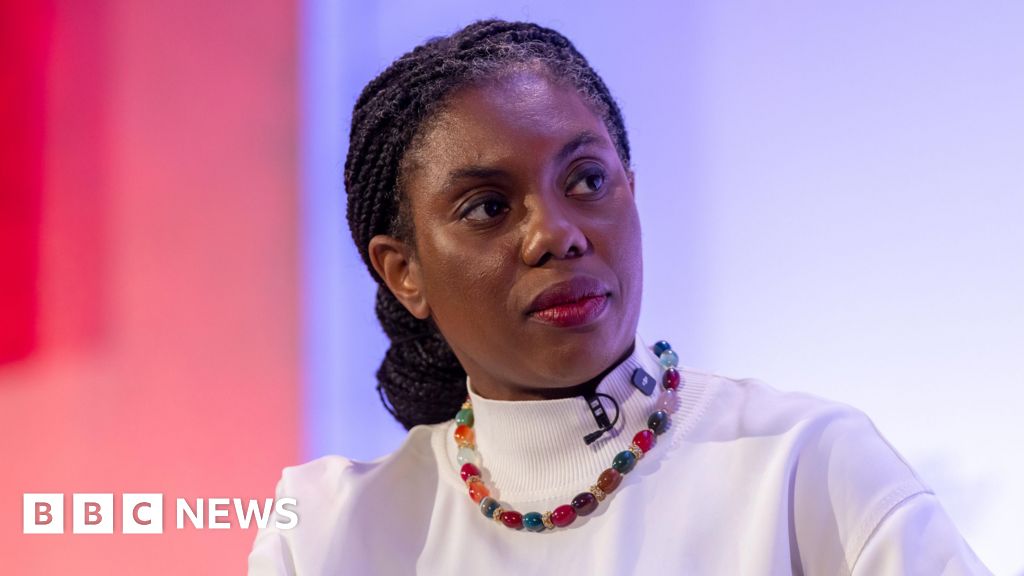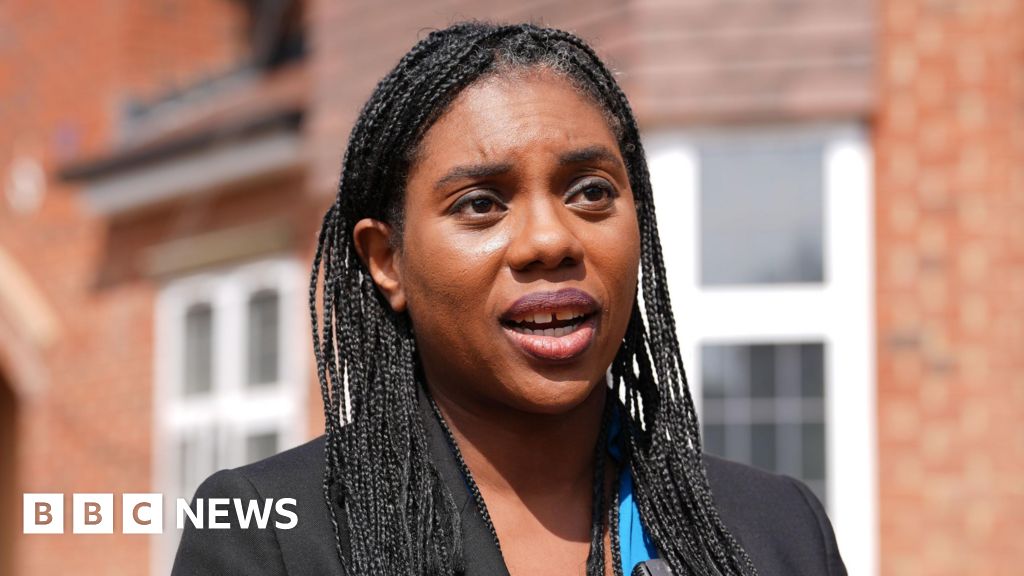T4K3.news
Kemi Badenoch claims she no longer identifies as Nigerian
In a podcast, Badenoch shares her views on identity and citizenship.

Badenoch shares her feelings about identity and citizenship while reflecting on her upbringing.
Kemi Badenoch distances herself from Nigerian identity
Kemi Badenoch, leader of the Conservative Party, revealed in a recent podcast interview that she no longer identifies as Nigerian. Born in London and raised in Nigeria and the United States, she stated that she has not renewed her Nigerian passport in over 20 years. Badenoch acknowledged her Nigerian ancestry but emphasized her identification with her current family in the UK. She expressed a sense of belonging to the Conservative Party, equating it with family. Her remarks come amidst a complex relationship with her Nigerian heritage, including past conflicts with Nigerian officials regarding her stance on corruption in the country. Badenoch also noted her positive experiences regarding racial prejudice in Britain.
Key Takeaways
"I’m Nigerian through ancestry, by birth, despite not being born there."
Badenoch discusses her connection to Nigeria while emphasizing her identity.
"I never quite felt that I belonged there."
Badenoch reflects on her feelings about Nigeria during her upbringing.
"People didn’t treat me differently, and I defend the UK against accusations of racism."
Badenoch shares her experience of racial dynamics in Britain.
Badenoch's statements reflect a significant personal narrative amid broader societal discussions about identity and belonging in a multicultural context. Her assertion that she does not consider herself Nigerian raises important questions about the definitions of nationality and identity in today's globalized world. As an individual with a diverse background, her views can resonate with many who navigate multiple identities. However, her comments may trigger discontent among those who feel she should embrace her heritage more fully, especially given the political tensions in Nigeria and her role as a prominent British politician. It highlights a growing conversation around the challenges faced by individuals with complex identities.
Highlights
- Identity is complex, shaped by experiences and family ties.
- Home is where my current family is, rooted in the UK.
- My story reflects the challenges of belonging in a global society.
- Racial prejudice in Britain has not been my experience.
Political sensitivity in Badenoch's identity remarks
Badenoch's distancing from Nigeria could provoke backlash from those who expect her to embrace her heritage, highlighting tensions related to national identity.
Her reflections on identity may influence discussions about race and belonging in politics.
Enjoyed this? Let your friends know!
Related News

Kemi Badenoch states she no longer identifies as Nigerian

Kemi Badenoch disavows Nigerian identity

Kemi Badenoch announces Cabinet reshuffle today

UK government commits to recognizing Palestinian state

Kemi Badenoch announces Conservative shadow cabinet reshuffle

Badenoch maintains support for Israel amidst Gaza suffering

Badenoch proposes strike ban for NHS doctors

Martin Lewis urges parents to claim £10,000s in missing payments
